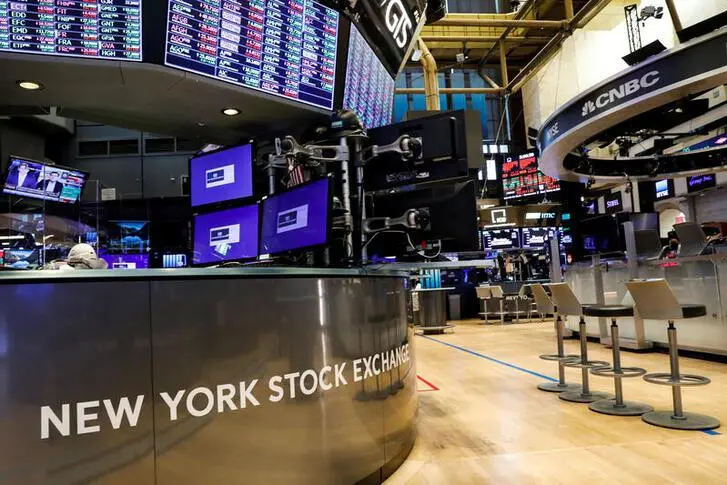PHOTO
(The author is a Reuters Breakingviews columnist. The opinions expressed are her own.)
NEW YORK - Pity the poor value investor. Someone looking for companies with solid, underappreciated earnings doesn't have a lot to choose from these days. Mergers and buyouts fueled by low rates have chipped away at the number of publicly-listed firms. Those remaining are borrowing more. And newcomers to public markets mostly lose money.
Since the mid-1990s, the number of listed companies in the United States has fallen steadily. There are about 3,600 public companies today, about one-half as many as there were in 1996, according to research from Morgan Stanley.
Over the same timeframe, the 10-year Treasury yield has gone to under 1% from over 5%. The two are related. Low interest rates encourage investors to search for higher returns, for example in private equity. That shift and cheap debt fuel leveraged buyouts, taking companies off public markets. Last year, twice as many U.S. companies were owned by buyout firms as stock-market investors, Morgan Stanley says.
Low interest rates have also stoked corporate consolidation in two ways. First, benchmark yields feed into a company's cost of capital, and the lower that falls the more a buyer can afford to pay, making a deal more likely. And secondly, as with buyouts, borrowing to fund acquisitions is cheap. Public companies have become more indebted. The stock of investment-grade corporate debt reached over $10 trillion in 2019, according BlackRock, an increase of more than five times since 2001 and its highest as a percentage of GDP since 2009.
Over time, companies may have a hard time supporting that debt, and Covid-19 has thrown off all the forecasts that existed before. Even so, the forward price-to-earnings ratio for the S&P 500 Index is near its highest in at least 10 years, according to FactSet.
As the number of stocks available dwindles, the recent flood of new companies coming to market ought to be good news. Here, too, though, a value-inclined investor is likely to be disappointed. Four-fifths of initial public offerings of operating companies this year have come with no earnings at all, according to Florida-based academic Jay Ritter, following the trend of recent years.
On Wednesday, the Federal Reserve made clear its policy interest rate will remain near zero for the foreseeable future. That helps drive many investors towards riskier higher-yielding investments and speculative bets like profit-free technology-startup IPOs. Old-school value stocks are a dying breed.
CONTEXT NEWS
- The U.S. Federal Reserve released projections on Sept. 16 showing that it expects to keep policy interest rates near zero at least through next year, with most of the 17 officials signaling they thought rates would stay at that level through 2023.
(The author is a Reuters Breakingviews columnist. The opinions expressed are her own.)
(Editing by Richard Beales and Amanda Gomez) ((Lauren.SilvaLaughlin@thomsonreuters.com))





















